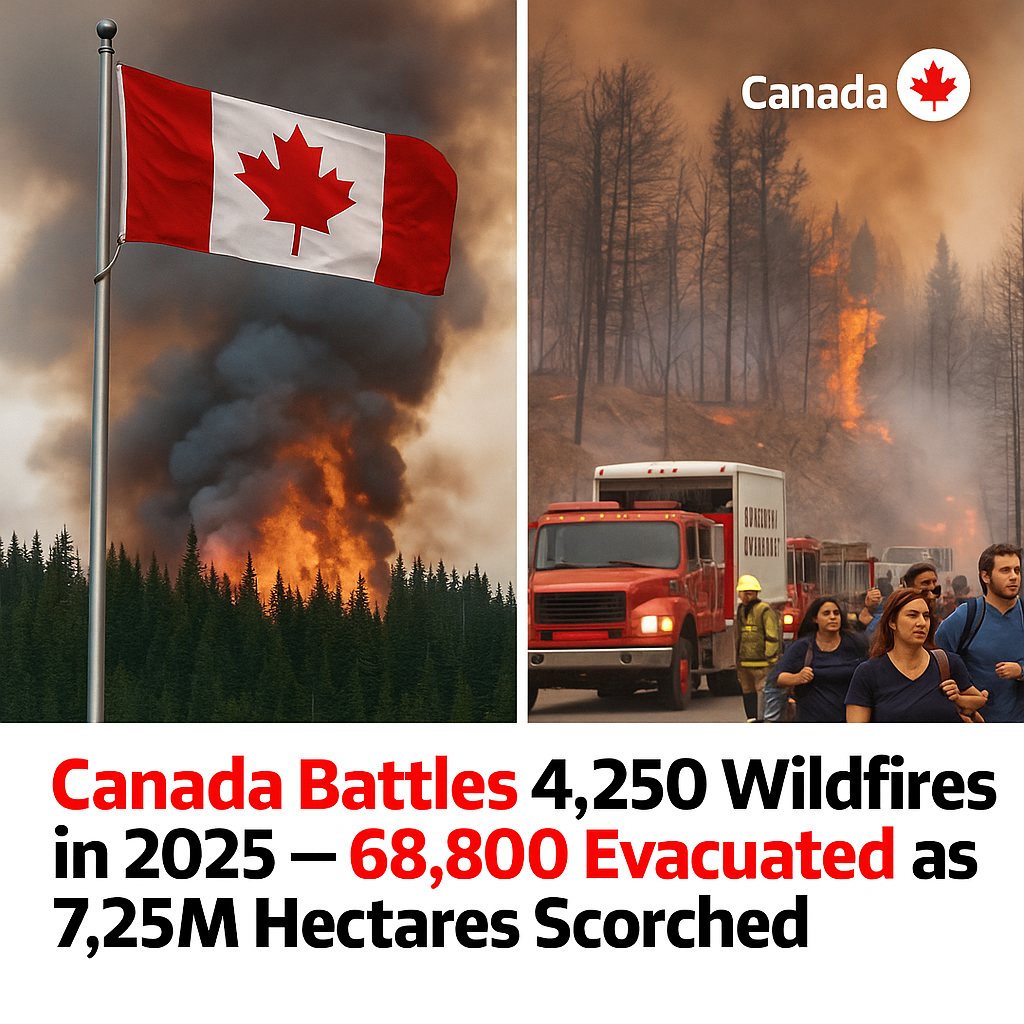Physical Address
304 North Cardinal St.
Dorchester Center, MA 02124
Physical Address
304 North Cardinal St.
Dorchester Center, MA 02124

Canada is facing one of its most destructive wildfire seasons in history. So far in 2025, more than 4,250 wildfires have broken out across the country, destroying vast stretches of land and displacing tens of thousands of people. The blazes have already scorched 7.25 million hectares, an area larger than Ireland, marking this as one of the most severe fire seasons on record.
The hardest-hit regions include British Columbia, Alberta, and the Northwest Territories, where prolonged dry conditions and high winds have fueled uncontrollable flames. Entire communities have been forced to evacuate, with over 68,800 people leaving their homes in search of safety. Emergency shelters are at capacity, and volunteers are working tirelessly to provide food, water, and medical aid to those affected.
Local businesses, schools, and public services have been severely disrupted. Families are facing uncertainty, not knowing when or if they will be able to return to their homes. For many, the damage is irreversible, with houses, farms, and forests reduced to ashes.
The crisis is not limited to Canada alone. Massive plumes of smoke have drifted south into the United States, triggering air quality warnings in several states, including New York, Michigan, and Illinois. Health officials urge vulnerable populations—such as children, seniors, and those with respiratory conditions—to stay indoors when the smoke is at its worst.
This cross-border impact shows how interconnected environmental disasters can be. What begins in one country can easily affect millions across borders, reinforcing the urgency of global cooperation in addressing climate-driven disasters.
Experts link the scale of these fires directly to climate change. Warmer average temperatures, prolonged droughts, and unpredictable weather patterns have created the perfect conditions for large and fast-spreading wildfires. Scientists warn that if greenhouse gas emissions are not curbed, Canada could see similar or worse fire seasons every year.
In response, the federal government has deployed additional firefighting crews, including support from the Canadian Armed Forces. International assistance has also been offered, with firefighters from several countries joining Canadian teams on the ground. Prime Minister Justin Trudeau described the situation as a “national emergency”, pledging increased funding for disaster relief and long-term support for rebuilding affected communities.
The 2025 wildfire season is a stark reminder of the growing threats posed by a warming planet. For thousands of Canadians, it has already meant loss, displacement, and uncertainty—and for the country as a whole, it underscores the urgent need to prepare for a future where extreme wildfires may no longer be rare events.